
Bafoussam: The Heartbeat of Western Cameroon
Nestled in the lush highlands of Western Cameroon, Bafoussam is a city that seamlessly blends the vibrancy of urban life with the rich traditions of the Bamileke people. Known for its cool climate and verdant landscapes, Bafoussam offers a refreshing escape for travelers looking to explore the cultural and natural gems of Cameroon. Bafoussam is a city brimming with history and tradition. The bustling central market is a must-visit, where you can immerse yourself in the local culture and purchase unique handicrafts, traditional attire, and fresh produce. The city's architecture is a testament to its heritage, with the Royal Palace of the Bamoun Sultanate being a prominent landmark. This palace, adorned with intricate carvings and historical artifacts, offers a glimpse into the royal lineage and traditions of the Bamoun people. Nature enthusiasts will find Bafoussam a haven with its scenic landscapes and outdoor activities. The nearby Bandjoun Station is an archaeological site that offers stunning views and insights into ancient civilizations. Additionally, the city is surrounded by picturesque hills and waterfalls, perfect for hiking and picnicking. For a more serene experience, visit the Dschang Plateau and its beautiful tea plantations. Bafoussam's culinary scene is another highlight, offering a taste of traditional Cameroonian cuisine. Local restaurants serve up a variety of dishes made from fresh, locally-sourced ingredients. Don't miss out on trying 'Ndolé' (a bitter leaf stew) and 'Koki' (a delicious bean pudding). The city's vibrant nightlife and friendly locals make it a welcoming destination for all travelers.
Local tips in Bafoussam
- Visit the central market early in the morning to experience the bustling atmosphere and get the best selection of local goods.
- Hire a local guide when exploring the historical and natural sites to gain deeper insights and ensure a safe journey.
- Bring a jacket or sweater, as the climate can be cooler compared to other regions in Cameroon.
- Try the local delicacies at smaller, family-owned restaurants for an authentic culinary experience.
- Learn a few basic phrases in French, as it is widely spoken in Bafoussam and will enhance your interactions with locals.
Bafoussam: The Heartbeat of Western Cameroon
Nestled in the lush highlands of Western Cameroon, Bafoussam is a city that seamlessly blends the vibrancy of urban life with the rich traditions of the Bamileke people. Known for its cool climate and verdant landscapes, Bafoussam offers a refreshing escape for travelers looking to explore the cultural and natural gems of Cameroon. Bafoussam is a city brimming with history and tradition. The bustling central market is a must-visit, where you can immerse yourself in the local culture and purchase unique handicrafts, traditional attire, and fresh produce. The city's architecture is a testament to its heritage, with the Royal Palace of the Bamoun Sultanate being a prominent landmark. This palace, adorned with intricate carvings and historical artifacts, offers a glimpse into the royal lineage and traditions of the Bamoun people. Nature enthusiasts will find Bafoussam a haven with its scenic landscapes and outdoor activities. The nearby Bandjoun Station is an archaeological site that offers stunning views and insights into ancient civilizations. Additionally, the city is surrounded by picturesque hills and waterfalls, perfect for hiking and picnicking. For a more serene experience, visit the Dschang Plateau and its beautiful tea plantations. Bafoussam's culinary scene is another highlight, offering a taste of traditional Cameroonian cuisine. Local restaurants serve up a variety of dishes made from fresh, locally-sourced ingredients. Don't miss out on trying 'Ndolé' (a bitter leaf stew) and 'Koki' (a delicious bean pudding). The city's vibrant nightlife and friendly locals make it a welcoming destination for all travelers.
When is the best time to go to Bafoussam?
Iconic landmarks you can’t miss
Marché B
Experience the vibrant heart of Bafoussam at Marché B, where local flavors and culture come alive in a colorful market setting.
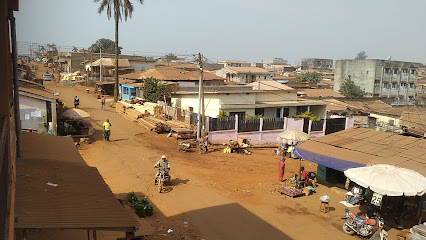
Talotel
Experience Bafoussam from Talotel, where tradition meets modern comfort in the heart of the city.
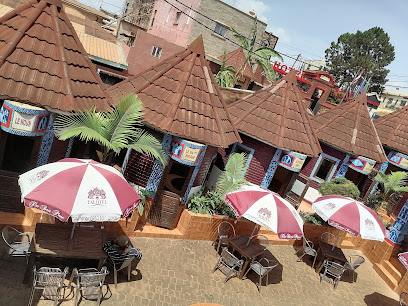
Hôtel Zingana
Experience comfort and culture at Hôtel Zingana in Bafoussam, with its unique architecture, excellent service, and convenient location for exploring the region.
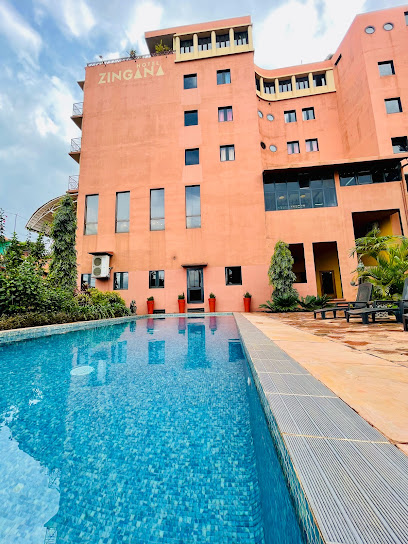
Hôtel Altitel
A conveniently located 2-star hotel in Bafoussam, offering essential amenities for exploring the city and the Western Highlands of Cameroon.
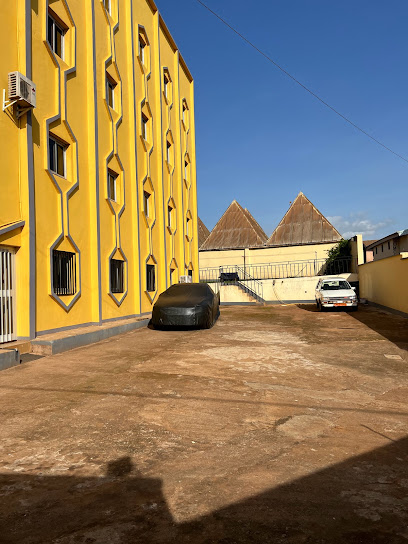
Bandjoun Station
Discover contemporary African art and culture at Bandjoun Station, a unique center fostering creativity, sustainability, and community in Cameroon.
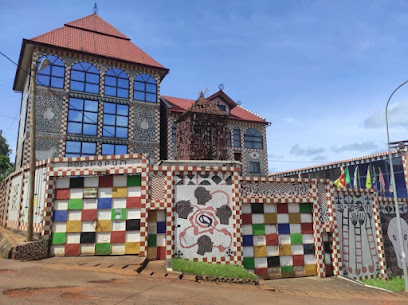
Chefferie Bandjoun
Explore the cultural heart of Cameroon at Chefferie Bandjoun, a vibrant representation of Bamileke heritage and traditions.

Hotel Golden Center, Bafoussam
Experience comfort and convenience at Hotel Golden Center, your gateway to exploring the vibrant city of Bafoussam and its rich cultural heritage.
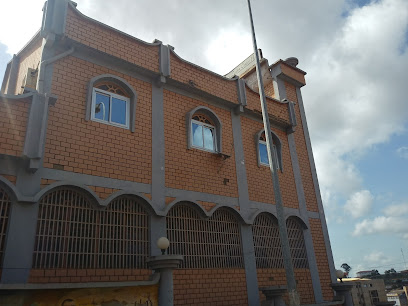
Grotte Fovu, Baham
Explore Grotte Fovu: a mystical Cameroon site with stunning rock formations, spiritual significance, and natural beauty.

Chutes de la Métché
Discover the breathtaking Chutes de la Métché in Cameroon: a blend of stunning waterfalls, lush scenery, and profound historical significance.

Hôtel Mbatkam Palace
A centrally located Bafoussam hotel offering comfortable rooms, free Wi-Fi, and convenient access to local attractions.
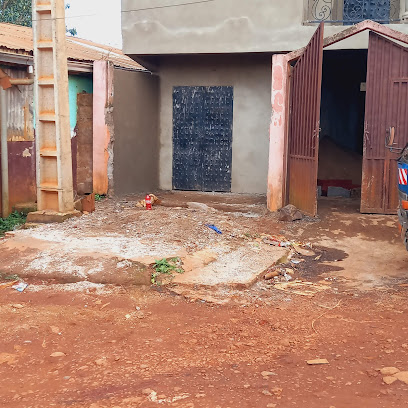
Mirage Motel
Experience Bafoussam on a budget at Mirage Motel, offering comfortable and affordable lodging in the heart of Cameroon's Western Highlands.
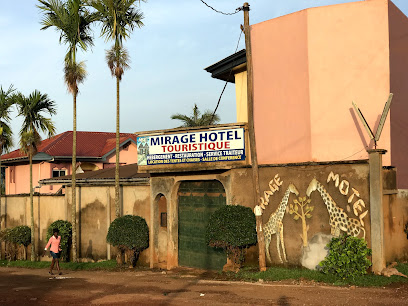
Residence Sare Hotel
Experience comfort and culture at Residence Sare Hotel in Bafoussam, your gateway to exploring the Western Highlands of Cameroon.

Guins Palace
Experience comfort and local culture at Guins Palace in Nkongsamba, Cameroon, your ideal retreat for exploring the region's attractions.

Monument WANKO
Discover Monument WANKO in Bafoussam: A tribute to Cameroon's rich history, perfect for history lovers and photography enthusiasts.

Chefferie Baleng
Explore the rich cultural heritage of the Bamileke people at Chefferie Baleng in Bafoussam, Cameroon. A must-see for culture enthusiasts!

Unmissable attractions to see
Carrefour Inter
Explore Carrefour Inter in Bafoussam: A vibrant hub of culture, cuisine, and local crafts in the heart of Cameroon.

Carrefour Saint Thomas
Experience the vibrant heart of Bafoussam at Carrefour Saint Thomas: a hub of culture, cuisine, and local life in Cameroon.
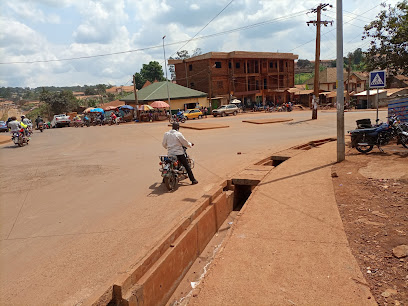
Monument WANKO
Discover the rich history and cultural heritage of Bafoussam at Monument WANKO, a landmark dedicated to the region's past.
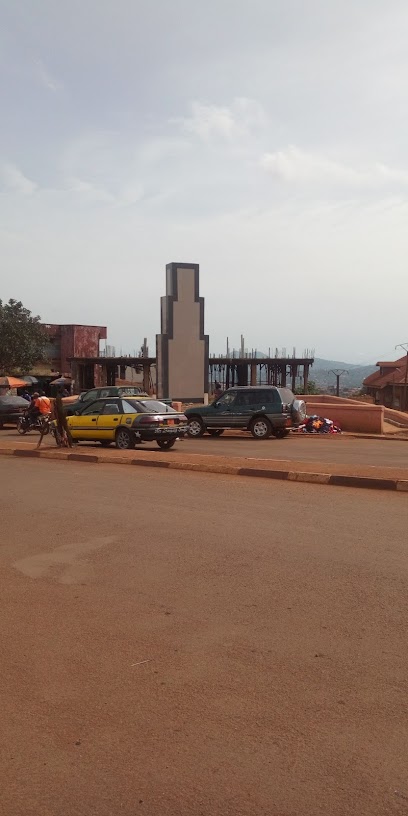
Chefferie Baleng
Explore the rich cultural heritage of Bafoussam at Chefferie Baleng, a museum that showcases local traditions and history.
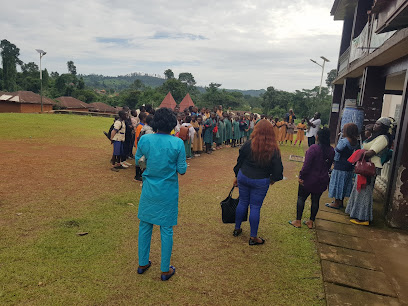
Balen
Experience the serene beauty of Balen Park in Bafoussam, a lush haven perfect for relaxation and enjoying nature's tranquility.

Rue Princesse
Experience the vibrant life of Bandjoun at Rue Princesse, a must-visit tourist attraction showcasing local culture, crafts, and culinary delights.
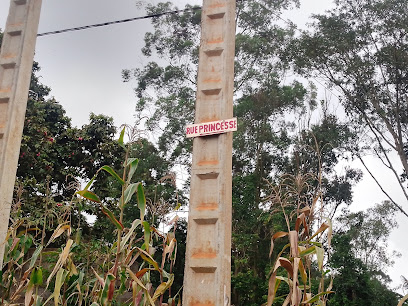
Laure
Explore the beauty and culture of Laure in Bafoussam, a captivating tourist attraction that invites you to discover the heart of Cameroon.

RÉSIDENCE FOCHOUO PROSPER ( JHONNY )
Experience the authentic Cameroonian culture at Résidence Fochouo Prosper in Bafoussam, where local charm meets stunning natural beauty.

Loisirs d'Éden
Experience the tranquil beauty of Loisirs d'Éden, a serene park in Bafoussam, perfect for relaxation and nature walks amidst lush greenery.
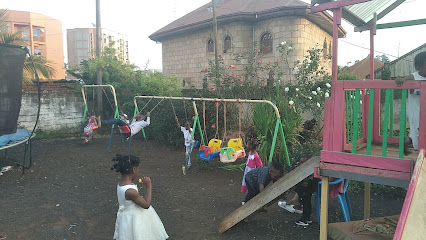
Carrefour Franco
Experience the vibrant heart of Njingah at Carrefour Franco, a bustling hub of local culture, crafts, and Cameroonian life.

Parc de loisir
Escape to Parc de Loisirs in Bafoussam: A serene garden oasis for family fun and relaxation in the city's heart.

Essential places to dine
La Terrasse , BAFOUSSAM
Experience the flavors of Cameroon at La Terrasse in Bafoussam - where tradition meets taste in a welcoming atmosphere.
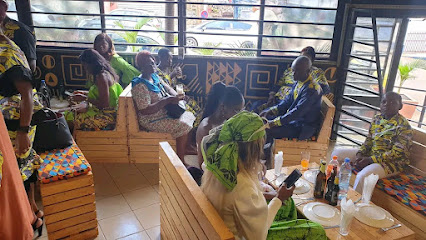
AMIGOS
Discover the vibrant flavors of Cameroon with an unforgettable hot pot experience at AMIGOS in Bafoussam.
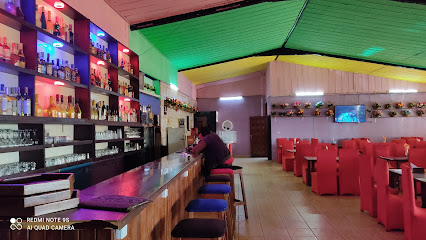
La Bonne Table de I'ouest
Discover the authentic flavors of Cameroon at La Bonne Table de I'ouest in Bafoussam – a must-visit dining destination for every traveler.
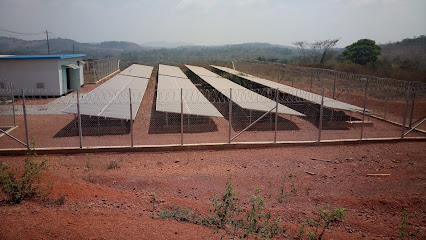
ASAT RESTAURANT
Experience authentic Cameroonian flavors at ASAT Restaurant in Bafoussam – a culinary haven for travelers seeking local delicacies.
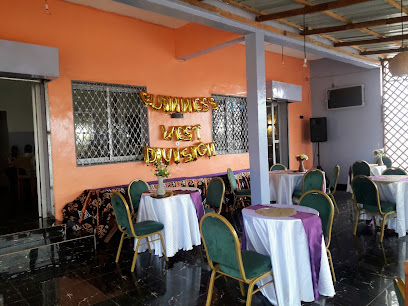
Restaurant SIM
Experience authentic Cameroonian cuisine at Restaurant SIM in Bafoussam – where every meal tells a story.
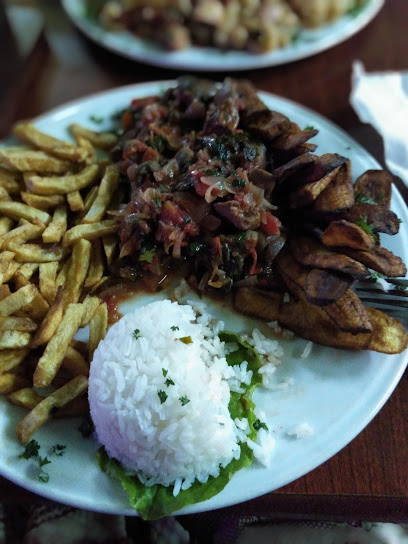
NEW BAHO, Bafoussam
Experience authentic Cameroonian cuisine at New Baho in Bafoussam - where every dish tells a story.
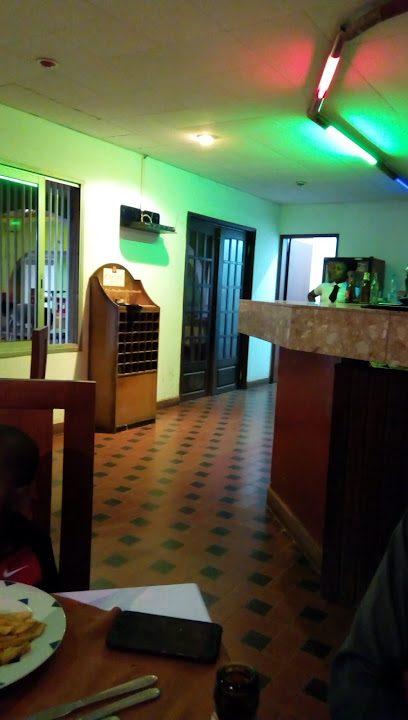
La plaisir
Experience the essence of Cameroon at La Plaisir - where fast food meets local flavor in Bafoussam.
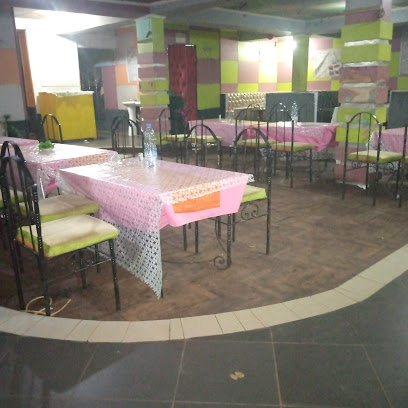
Le Repos Du Pèlerin
Discover authentic Cameroonian cuisine at Le Repos Du Pèlerin in Bafoussam – where every meal tells a story.
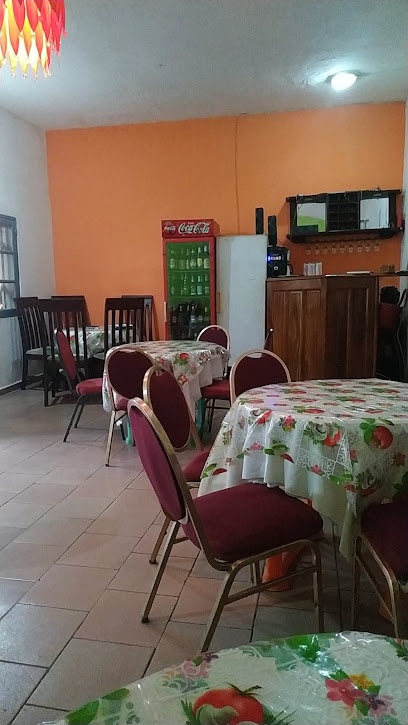
Buffet La Passion
Experience the rich flavors of Cameroon at Buffet La Passion in Bafoussam – where local cuisine meets international delights.
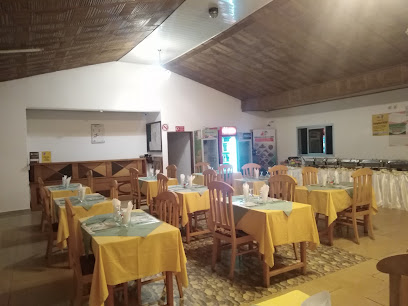
Ets Delice Cuisine Restaurant
Discover authentic Cameroonian flavors at Ets Delice Cuisine Restaurant in Bafoussam - where every meal is a celebration of taste.
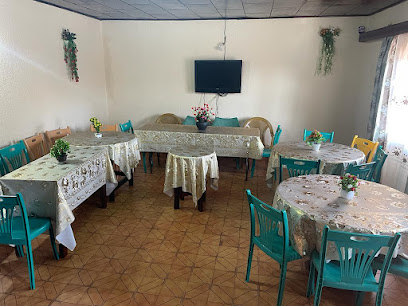
ADRIEN FAST-FOOD
Experience authentic Cameroonian flavors at Adrien Fast-Food in Bafoussam - delicious meals at budget-friendly prices.
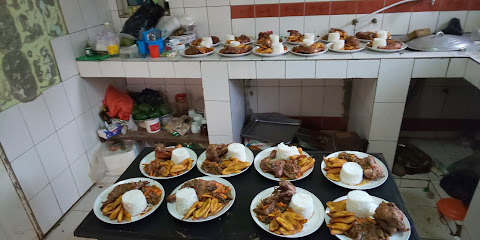
café restaurant chez king’s
Discover authentic flavors at Café Restaurant Chez King’s in Bafoussam—where local dishes meet international cuisine in a warm setting.
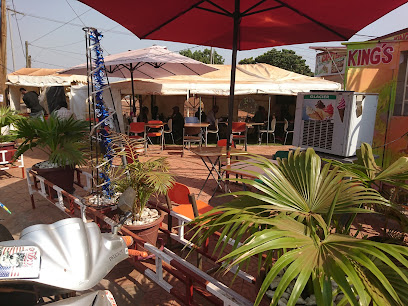
Restaurant Le Sawet
Experience authentic Cameroonian flavors at Restaurant Le Sawet in Bafoussam - a culinary gem that captures the essence of local cuisine.
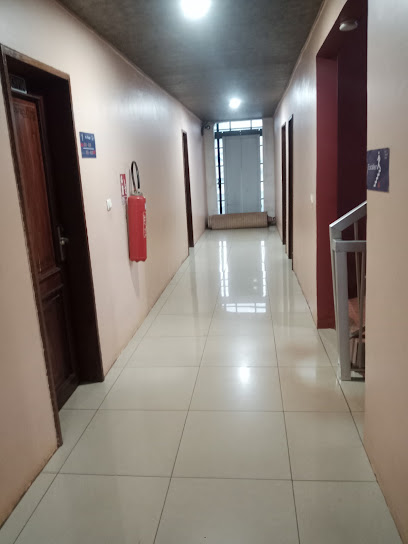
Mr N fast-food Touristique
Experience authentic Cameroonian flavors at Mr N Fast-Food Touristique - where tradition meets convenience.
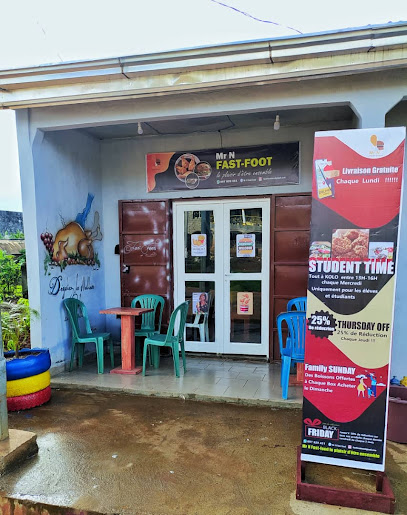
Restaurant AZ
Experience authentic Cameroonian cuisine at Restaurant AZ in Bafoussam – where local flavors meet warm hospitality.
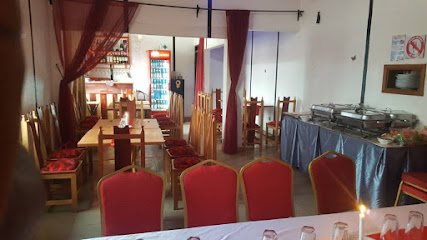
Markets, malls and hidden boutiques
Supermarché, restaurant, snack bar Yatch center
Explore the Supermarché, Restaurant, and Snack Bar Yatch Center in Bafoussam for a unique shopping and dining experience infused with local culture.
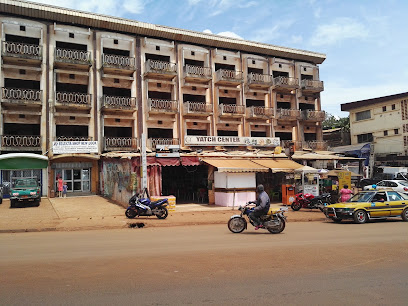
LE REPÈRE
Explore the heart of Bafoussam at Le Repère supermarket, where local culture and diverse products come together for an unforgettable shopping experience.
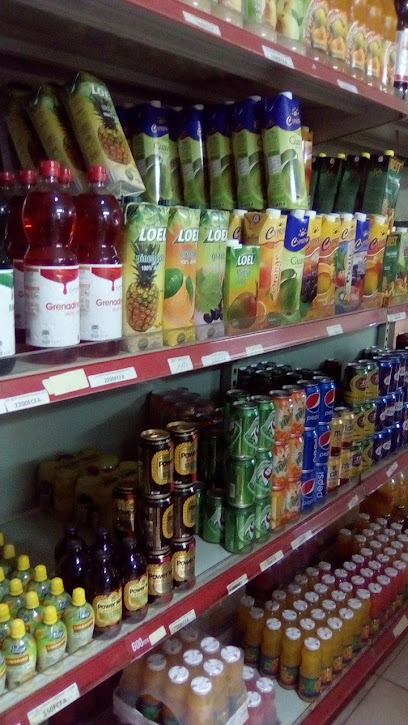
Point Plus Supermarket
Discover local flavors and fresh produce at Point Plus Supermarket, your go-to shopping destination in Bafoussam.
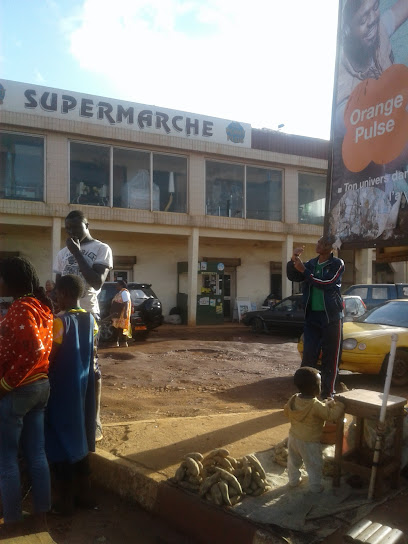
PREMIUMTECHCAMEROUN
Discover the best in electronics at PremiumTech Cameroun, your essential tech stop in Bafoussam, Cameroon.
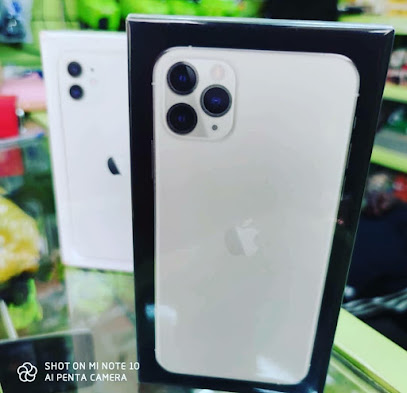
Xiaomi.Cameroun
Explore the latest mobile accessories and tech gadgets at Xiaomi.Cameroun in Bafoussam, your ultimate shopping destination for electronics.

BLI SA DOUBLECOIN
Discover the heart of Bafoussam at BLI SA DOUBLECOIN, a vibrant shopping mall offering diverse shops and local cuisine in Cameroon.
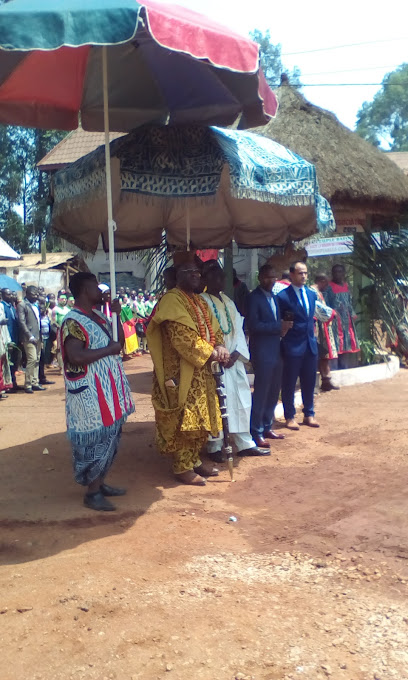
LISA PAPETERIE
Explore the artistic charm of LISA PAPETERIE in Bafoussam, where local craftsmanship meets vibrant culture for unique souvenirs.
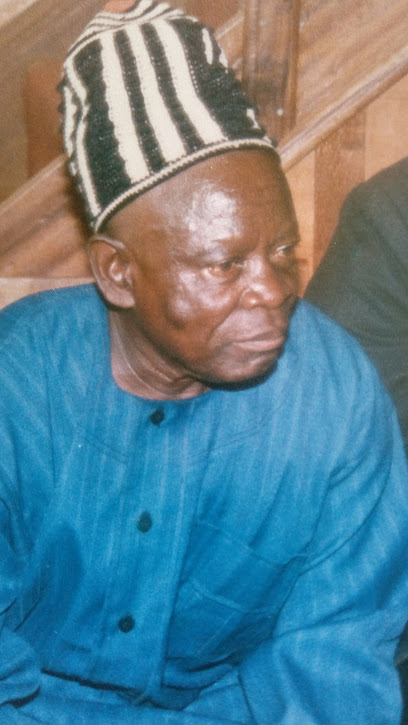
Sté des Ets A. Nziko Bafoussam
Explore the vibrant Sté des Ets A. Nziko in Bafoussam – your ultimate shopping destination blending local culture with a variety of retail and dining experiences.

Complexe Commercial en contrebas de la maison du parti
Experience the heart of Bafoussam at Complexe Commercial en Contrebas de la Maison du Parti, where shopping meets local culture.
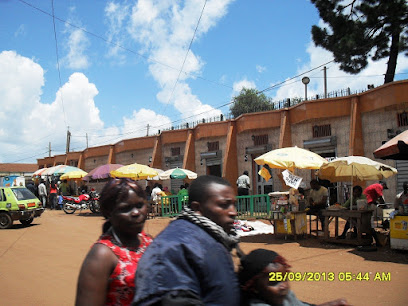
Boutique Orange DJEMON
Discover exceptional mobile solutions at Boutique Orange DJEMON, Bafoussam's premier cell phone store for tourists and locals alike.
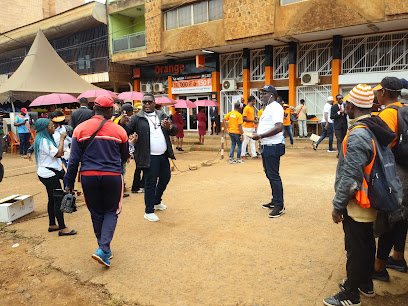
Marché A de Bafoussam
Experience the local culture at Marché A de Bafoussam, a vibrant market featuring fresh produce, unique crafts, and the essence of Cameroonian life.

Shop Bafoussam
Experience the best of shopping and dining at Shop Bafoussam, where local culture meets modern convenience in the heart of Bafoussam.

Le Kolatier SARL Complexe
Discover the vibrant atmosphere of Le Kolatier SARL Complexe, a premier shopping destination in Bafoussam, Cameroon, blending local culture with diverse shopping experiences.

Shopivia
Discover unique fashion and local crafts at Shopivia, Bafoussam's premier boutique offering a taste of Cameroonian culture.
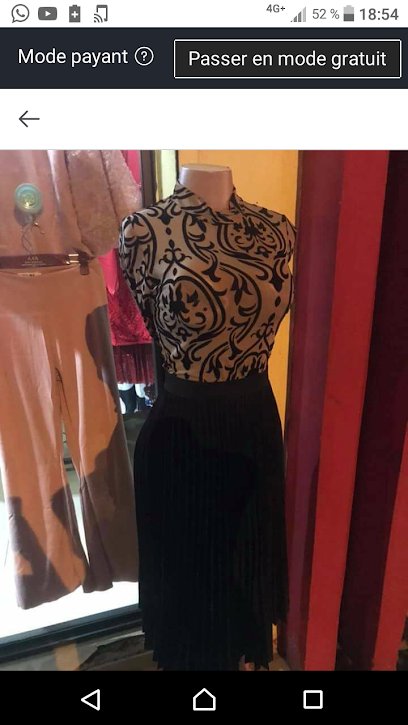
AQUILAS BAFOUSSAM CAMEROUN
Discover unique fashion accessories inspired by Cameroonian culture at Aquilas Bafoussam, perfect for enhancing your style or finding the ideal souvenir.

Essential bars & hidden hideouts
Panama snack bar vip bafoussam
Discover the vibrant atmosphere and local flavors at Panama Snack Bar, a must-visit lounge in the heart of Bafoussam.
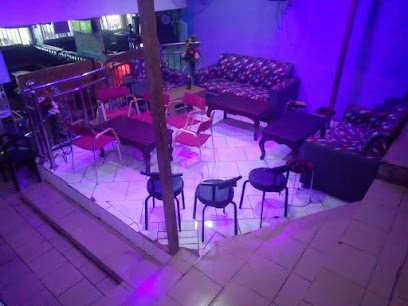
OBSERVATOIR
Discover the vibrant culture of Bafoussam at Observatoir, where local flavors and a lively atmosphere come together for an unforgettable experience.
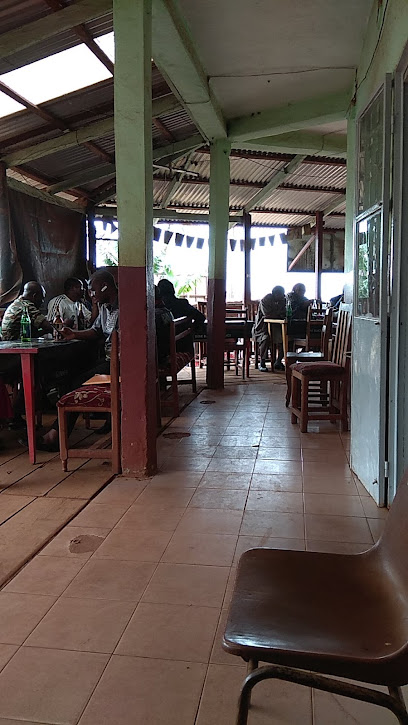
Souvenir bar
Experience the vibrant nightlife at Souvenir Bar in Bafoussam, where local culture meets a lively atmosphere for an unforgettable evening.

Virage Bar
Discover the vibrant charm of Virage Bar in Bafoussam, where local culture meets affordable indulgence in a lively atmosphere.
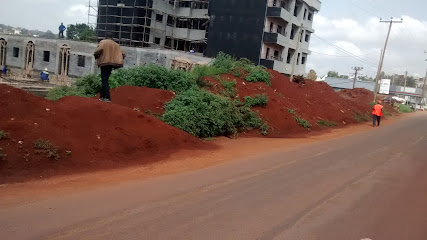
terminus Bar Spc
Discover the lively atmosphere of Terminus Bar in Bafoussam, where local culture meets refreshing drinks and warm hospitality.

Face Booke
Experience the vibrant nightlife of Bafoussam at Face Booke, where affordable drinks and a welcoming atmosphere await every visitor.
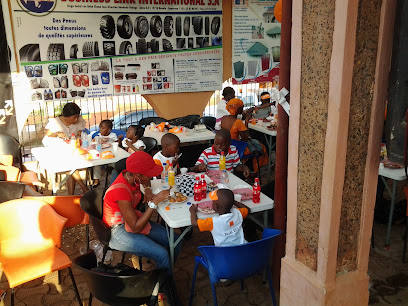
St James, Bafoussam
Discover the vibrant nightlife of St James in Bafoussam, where local drinks and lively music create an unforgettable experience.
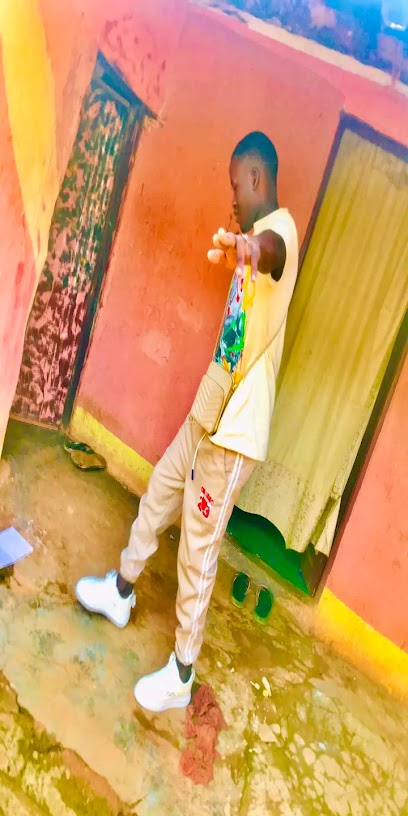
PARLEMENT11 BAR
Discover the lively atmosphere of PARLEMENT11 BAR, a perfect spot to enjoy local drinks and immerse yourself in Bafoussam's vibrant nightlife.

Canadien Bar
Experience the vibrant nightlife and local culture at Canadien Bar in Bafoussam, a hub for socializing and entertainment.

Le manoir plus lounge
Discover the lively charm of Le Manoir Plus Lounge in Bafoussam, a perfect blend of local culture, delicious drinks, and vibrant nightlife.
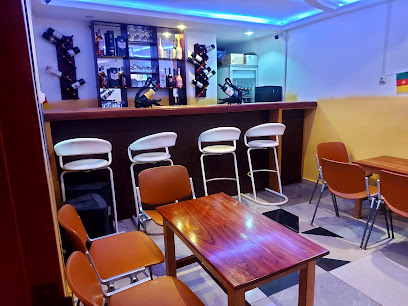
Capital Bar
Experience the vibrant nightlife and local flavors at Capital Bar in Bafoussam, a must-visit for tourists seeking relaxation and fun.

SNACK BAR LA BALEINE
Experience the lively atmosphere and local flavors at Snack Bar La Baleine in Bafoussam, a perfect spot for relaxation and socializing.
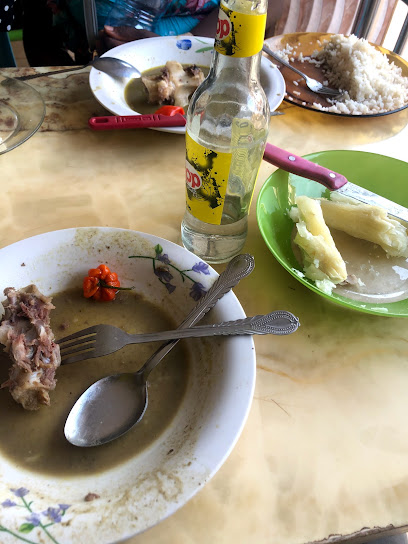
Aide maman bar
Discover the charm of Aide Maman Bar in Bafoussam, where local culture meets a cozy atmosphere for an unforgettable experience.

IDIL, Bafoussam
Experience the vibrant nightlife of Bafoussam at IDIL, a lively bar offering a delightful selection of drinks and a welcoming atmosphere.
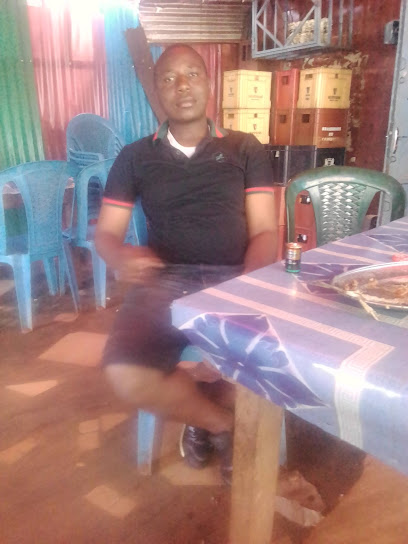
ARC-EN-CIEL bar
Discover the vibrant nightlife of Bafoussam at ARC-EN-CIEL Bar, where local flavors meet a welcoming atmosphere for an unforgettable experience.

Local Phrases
-
- HelloMbolo
[M-boh-loh] - GoodbyeAdieu
[Ah-dyuh] - YesEya
[Eh-yah] - NoNga
[N-gah] - Please/You're welcomePilé
[Pee-lay] - Thank youMèsi
[Meh-see] - Excuse me/SorryPardon
[Par-dohn] - How are you?Na tè?
[Nah tay] - Fine. And you?Nyengga. Na?
[N-yeh-ng-gah. Nah] - Do you speak English?O wula Anglè?
[Oh woo-lah Ahn-glay] - I don't understandA ngo no
[Ah n-goh noh]
- HelloMbolo
-
- I'd like to see the menu, pleaseA nje mo ko
[Ah n-jeh moh koh] - I don't eat meatA nje nyama
[Ah n-jeh nyah-mah] - Cheers!Bona!
[Boh-nah] - I would like to pay, pleaseA nje lè
[Ah n-jeh lay]
- I'd like to see the menu, pleaseA nje mo ko
-
- Help!Ndolè!
[En-doh-lay] - Go away!Tè woulè!
[Tay woo-lay] - Call the Police!Ko wula polisè!
[Koh woo-lah poh-lee-say] - Call a doctor!Ko wula doktorè!
[Koh woo-lah dohk-toh-ray] - I'm lostA nje ngo koo
[Ah n-jeh n-goh koh] - I'm illA nje sè
[Ah n-jeh say]
- Help!Ndolè!
-
- I'd like to buy...A nje kaa...
[Ah n-jeh kah] - I'm just lookingA nje nyin
[Ah n-jeh nyin] - How much is it?Njoo o?
[N-joh oh] - That's too expensiveO sii sè
[Oh see say] - Can you lower the price?O kè
[Oh kay]
- I'd like to buy...A nje kaa...
-
- What time is it?Mbo nyoo?
[M-boh nyoh] - It's one o'clockNyoo nji
[Nyoh n-jee] - Half past (10)Nyoo ni wou
[Nyoh nee woo] - MorningBati
[Bah-tee] - AfternoonNyuyi
[N-yoo-yee] - EveningEso
[Eh-soh] - YesterdayKwà
[Kwah] - TodayNyi
[N-yee] - TomorrowNyi kè
[N-yee kay] - 1Nyoo
[Nyoh] - 2Njoo
[N-joh] - 3Sanzoo
[Sahn-zoh] - 4Nyin
[N-yin] - 5Njè
[N-jay] - 6Nkoo
[N-koh] - 7Nyim
[N-yim] - 8Nyiè
[N-yay] - 9Nyia
[N-yah] - 10Nyiam
[N-yee-am]
- What time is it?Mbo nyoo?
-
- Where's a/the...?Tè ni...?
[Tay nee] - What's the address?Wula addrès?
[Woo-lah ah-dray] - Can you show me (on the map)?O kè ni (na mapi)?
[Oh kay nee] - When's the next (bus)?Kwà ni (karwè)?
[Kwah nee] - A ticket (to ....)Wula tilè (tè ....)
[Woo-lah tee-lay]
- Where's a/the...?Tè ni...?
History of Bafoussam
-
Bafoussam, situated in the highlands of western Cameroon, has a rich history that dates back to pre-colonial times. The area was originally inhabited by various ethnic groups, primarily the Bamiléké people. The early settlers were known for their agricultural prowess, cultivating crops such as yams, maize, and beans, which remain staples in the region to this day.
-
The Bafoussam Kingdom emerged as a significant political entity in the 17th century. It was established by the Bamiléké people, who centralized their governance under a traditional chieftaincy system. The kingdom became a focal point for trade and cultural exchange among neighboring regions, fostering a unique blend of customs and traditions.
-
During the late 19th and early 20th centuries, Bafoussam, like much of Cameroon, came under the influence of German colonial rule. The Germans introduced new agricultural techniques, infrastructure, and educational systems. However, their presence also led to significant social and political upheaval, disrupting traditional structures and practices.
-
Following Germany's defeat in World War I, Cameroon was divided between France and Britain under the League of Nations mandates. Bafoussam fell under French control, which brought about further changes in administration, education, and infrastructure. The French influence is still evident today in the city's architecture and language.
-
Cameroon gained independence from French colonial rule in 1960. Bafoussam, as a significant urban center, experienced rapid growth and development in the post-colonial era. The city became a hub for commerce, education, and culture, attracting people from various parts of the country and beyond.
-
Bafoussam is renowned for its vibrant cultural heritage. The Bamiléké people celebrate numerous traditional festivals, such as the annual 'Ngouon' festival, which showcases traditional dances, music, and rituals. These cultural events provide a glimpse into the rich traditions and practices that have been passed down through generations.
-
Today, Bafoussam is a bustling city that blends historical charm with modern amenities. It is a key economic and cultural center in Cameroon, known for its markets, educational institutions, and diverse culinary scene. The city's historical sites, such as the Royal Palace and traditional Bamiléké houses, continue to attract visitors interested in exploring its rich past.
Bafoussam Essentials
-
Bafoussam is located in the western region of Cameroon. The closest international airport is Douala International Airport, approximately 220 kilometers away. From Douala, you can take a domestic flight to Yaoundé Nsimalen International Airport or Bamenda Airport. Alternatively, you can travel by road; there are buses and car hire services available. The journey by bus or car from Douala to Bafoussam typically takes around 4 to 5 hours, depending on traffic and road conditions.
-
Within Bafoussam, you have several transportation options. Moto-taxis are a popular and inexpensive way to get around, but safety can be a concern. For a more secure option, you can use regular taxis; always negotiate the fare before starting your journey. Public buses and minibuses (commonly known as 'clandos') operate within the city and connect to nearby towns. If you prefer more flexibility, renting a car is also an option, though be aware that road conditions can vary.
-
The official currency in Cameroon is the Central African CFA Franc (XAF). Credit cards are accepted in some hotels, restaurants, and larger shops, but cash is still king, especially in smaller establishments and markets. ATMs are available in Bafoussam, but it is advisable to carry some cash with you at all times. Make sure to notify your bank of your travel plans to avoid issues with your cards.
-
Bafoussam is generally a safe city for tourists, but like any place, it has areas where caution is advised. Avoid walking alone at night, especially in poorly lit areas and neighborhoods such as Quartier Tsadjeu and Quartier Djeleng. Petty crimes like pickpocketing can occur in crowded places such as markets and bus stations. Always keep your belongings secure and be aware of your surroundings.
-
In case of emergency, dial 112 for immediate assistance. The main hospital in Bafoussam is Hôpital Régional de Bafoussam, which offers a range of medical services. Pharmacies are available for minor health issues and over-the-counter medications. It is highly recommended to have travel insurance that covers medical emergencies and evacuation.
-
Fashion: Do dress modestly. Avoid wearing flashy jewelry or revealing clothing. Religion: Do respect local customs and traditions. When visiting religious sites, dress conservatively and remove your shoes before entering. Public Transport: Do be respectful and patient. Don't argue with drivers over fares; negotiate calmly and in advance. Greetings: Do greet people with a handshake and use appropriate titles. Eating & Drinking: Do try local dishes and be open to eating with your hands. Don't refuse food or drink offerings, as it can be considered impolite.
-
To experience Bafoussam like a local, visit the Marché A and Marché B for fresh produce and traditional goods. Engage with locals who are often friendly and eager to share stories and tips. Don't miss the cultural performances at the Chefferie Bafoussam, where you can learn about local traditions and history. Also, try to visit the nearby Bandjoun Palace and the sacred Lake Baleng for a full cultural immersion.
Nearby Cities to Bafoussam
-
Things To Do in Mbouda
-
Things To Do in Dschang
-
Things To Do in Foumban
-
Things To Do in Bamenda
-
Things To Do in Nkongsamba
-
Things To Do in Bafia
-
Things To Do in Mamfe
-
Things To Do in Douala
-
Things To Do in Edea
-
Things To Do in Tiko
-
Things To Do in Buea
-
Things To Do in Limbe
-
Things To Do in Yaoundé
-
Things To Do in Calabar
-
Things To Do in Malabo







